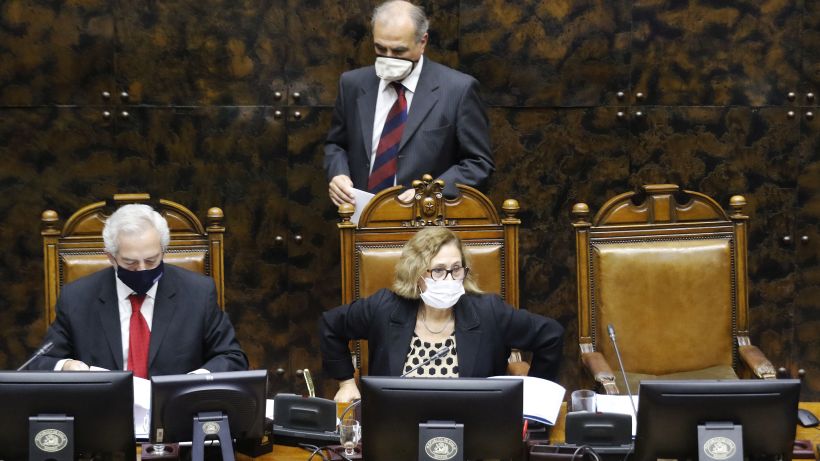
Congress completed the processing of the bill establishing commutative pardons for the at-risk population inside prisons. The government veto was approved in the Senate and then in the House and will allow those convicted of certain crimes, to continue the fulfillment of their sentence in the form of house arrest, to prevent the spread of Covid-19 in prisons. The project seeks to benefit 1,300 inmates and excludes those convicted of serious crimes, crimes against humanity and domestic violence from the benefit. However, the bill will have to circumvent an injunction submitted by eleven senators of officialism to the Constitutional Court, arguing that discrimination should not be by type of crime, but by the age and risk of the convicts. In addition, the government-issued veto corrected a defect that submitted approval of the original project, concerning the consequences for convicts who violated total house arrest. Regarding the new law, Minister Hernán Larraín noted that “we value approval in Congress, as it was urgent to move forward on this project, because for the Government, and particularly for the Ministry of Justice and Human Rights, it is an obligation to look after those in state custody in prisons, and to generate concrete measures to take care of their health and life. With this commutative pardon for low-hazard inmates, we are moving along the right line.” These are the details of the project: Over 75 years: An exceptional situation is the criminal population over 75 years old, because unlike all other groups benefited, no additional requirements will be requested to access the benefit. This, as the group is most at risk, because this stage of life is characterized by degenerative processes, both physical and psychological, which negatively impacts the chances of survival against the contagion of COVID-19. Over 65 and under 75: For those who are 55 years of age or older for women, or 60 years or older for men, and less than 75, to access the pardon they must serve half of the sentence, and subtract them from serving a balance equal to or less than 36 months. Pregnant or young children: For convicted women who are pregnant or have a child under two years of age, residing in the penal unit, they must serve one third of the sentence in order to access the benefit and subtract them from serving a balance equal to or less than 36 months. Night seclusion: Persons who serve the night sentence, to access the benefit, will be required a minimum time of sentence of one third of their sentence, and that subtracts them for a balance equal to or less than 36 months. The pardon in this case shall consist of nightly home inmate, for the remaining time of sentence. People with free half-free access: Those who are deprived of their liberty but are enjoying the controlled exit benefit to the free environment will be required for a minimum sentence of half their sentence, and to subtract them from serving a balance equal to or less than 36 months. People who have 36 months left in prison: Persons who are serving a custodial sentence, and have served half their sentence, subtracting less than 36 months of sentence, and benefiting from Sunday leave or weekend leave of absence, will temporarily serve their sentence by penalty of total home detention , for six months from the day of entry into force of this law, at the expiration of which, each convicted person shall continue to comply with their respective sentences within the prisons. Revocation of benefit: The benefit will be revoked for those who fail to comply with house arrest or who commit a crime or simple crime during the fulfillment of the commuted sentence. Exclusion from benefit for those who have committed serious crimes: All persons who have committed serious or violent crimes, such as kidnapping, child abduction, torture, unlawful assault, unlawful association, rape, rape with murder, aggravated sexual abuse, any sexual offence against minors, parricide, femicide, simple homicide and qualified homicide, infanticide, unlawful trafficking, human trafficking, human trafficking, and human trafficking, , qualified theft, terrorist crimes, genocides, crimes against humanity or war crimes and crimes of the gun control law.
"El reclamo puede ser genuino, pero construido sobre una mentira", apuntó el presidente Javier Milei…
El gobernador de la provincia de Buenos Aires, Axel Kicillof, encabezó un acto en Ensenada…
El diputado nacional de La Libertad Avanza, José Luis Espert, expresó su confianza en la…
Tras la masiva reaparición de Cristina Fernández de Kirchner, el presidente Javier Milei apuntó contra…
El principal propósito de la nueva comisión es evaluar los recursos humanos en el Senado,…
En una medida que busca redefinir las condiciones de los seguros de automóviles en Argentina,…
Esta web usa cookies.